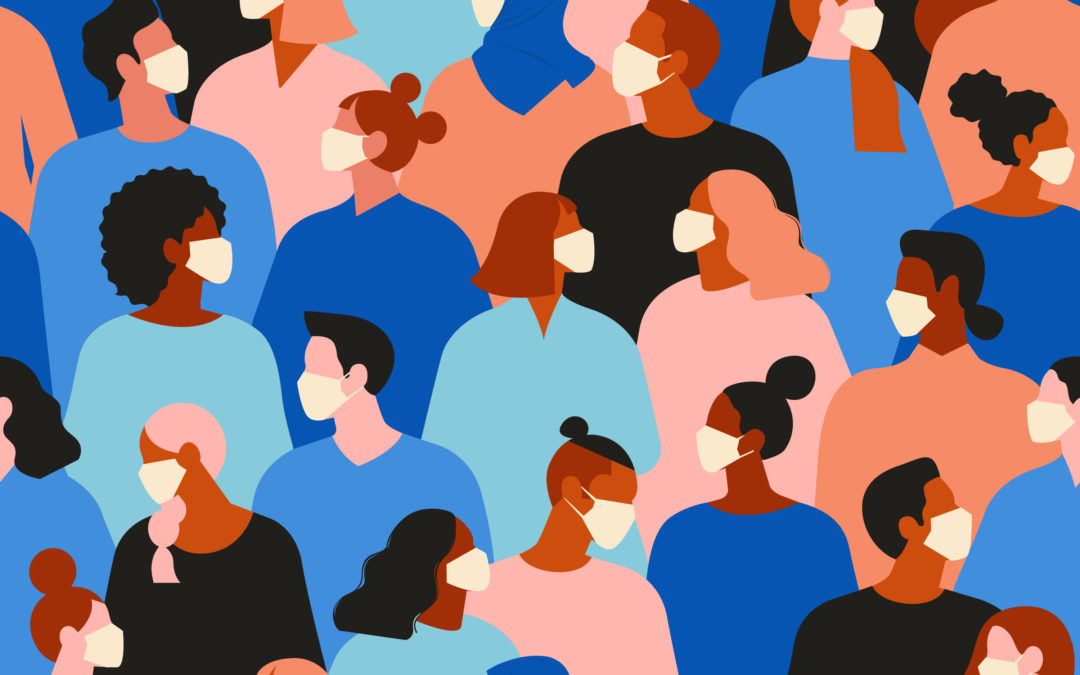How Was Your War?
In Britain after WWII, when old friends saw each other again, they asked, “How was your war?” I think that expression captures the fact that even under similar circumstances, our individual experiences and frustrations can be quite different. Friends and staff members struggling with home schooling children are tearing their hair out about problems with Zoom, confusing homework and kids who are acting out their frustrations. I am incredibly grateful that I am not trying to quarantine my husband who had advanced dementia. My heart goes out to the caregivers of people with serious mental illness.
I Am So Glad to Be (ANYWHERE)
While I feel for my friends who are desperate for some time alone, I find my sanity is a bit frayed from being alone too much. I had two really challenging days in clinic trying to manage incredibly sick patients (without hospitalizing them), work around all the COVID disruptions in care, and communicate complex instructions to family members who are prohibited from coming into examination rooms. Despite all that, in the back of my mind I was thinking, “I AM SO GLAD TO BE HERE.” I don’t think I realized before how important social interaction at work is to me — with patients, staff and colleagues — since that’s all the social interaction I have. And the problem with working from home the rest of the time is that you can’t ever “leave the office.” There are no natural breakpoints, and the result is that I work all the time. And let’s face it, that is wearying.
It’s the Little Things That Get to You
On the other hand, I feel silly complaining. My patients in assisted living facilities tell me about “social distancing” that really translates to extreme social isolation. They are depressed and losing weight. They are lonely. They miss their grandchildren. We are trying to figure out how to ramp wound center volume back up again – but we have at least one nurse who can’t come back to work until she has child care. Our volume is down, in part because we can’t have more than one or two people in the waiting room and have spread out the schedule as a result. It’s hard to work in a mask all day, and if the patient doesn’t wear his/her hearing aid, it’s impossible to communicate with them when you are both wearing masks. Yesterday I took to writing notes on a clipboard or using pantomime. It’s the little things that get to you.
It’s the Big Things That Get to You
It’s hard to complain about needing a haircut and a manicure when you have patients in the ICU or when colleagues are sick with COVID. (But I do need a haircut and a manicure). And there’s the financial impact. The future of our wound center is uncertain largely because the financial future of the hospital system is uncertain. Patients are not sure they can pay their bills. I understand. My financial future is precarious and I thought that the Payroll Protection funds would help – but I didn’t get any of the money, nor did any doctors I know. It seems to me that big businesses got all the money. So, it’s the big things that get to you.
The Next Battle
I read Dr. Carter’s blogs about seroprevalence and reopening the economy. The good news for Houston was that the lockdown came in time to flatten our curve. The bad news is that the lockdown came in time to flatten our curve. It’s only my personal, non-expert opinion, but I think we will peak here when we reopen the economy – and we need to reopen the economy anyway. Given COVID-19’s high transmissibility (I guessed early on that its R-0 was 5 or higher and I suspect I’m not far off), I think the majority of folks will eventually have to deal with it. Dr. Carter’s analysis of the data suggests that every country pays the COVID-19 piper sooner or later – we can decide on the pattern and speed of virus spread, but we can’t stop it. We can control how much we devastate the economy. At some point, the negative impact of battle fatigue on individuals and the impact of the lockdown on the economy outweighs the risk of infection with COVID-19. If you are thinking, “I’m not sure how much longer I can do this, LIKE THIS,” so am I. We may be headed for a different battle, but it’s about time.

Dr. Fife is a world renowned wound care physician dedicated to improving patient outcomes through quality driven care. Please visit my blog at CarolineFifeMD.com and my Youtube channel at https://www.youtube.com/c/carolinefifemd/videos
The opinions, comments, and content expressed or implied in my statements are solely my own and do not necessarily reflect the position or views of Intellicure or any of the boards on which I serve.




Dr. Fife:
If indeed the R nought is that high, then the basic mathematics of geometric progressions MUST be explained to the general public so that they heed social distancing directives. I disagree with you on one point. If the R nought is indeed that high (>5), then the opening up the economy (barring very limited local re-openings in areas with sparse population and relatively small population movement in and out of this area) will ALWAYS be secondary to viral social mitigation until the R nought is
Caroline, your posts are most insightful and opinions right on the Mark. You are doing such wonderful work abd I hope your posts get the largest possiboe coverage. I’m sorry to hear about your husbands situation.